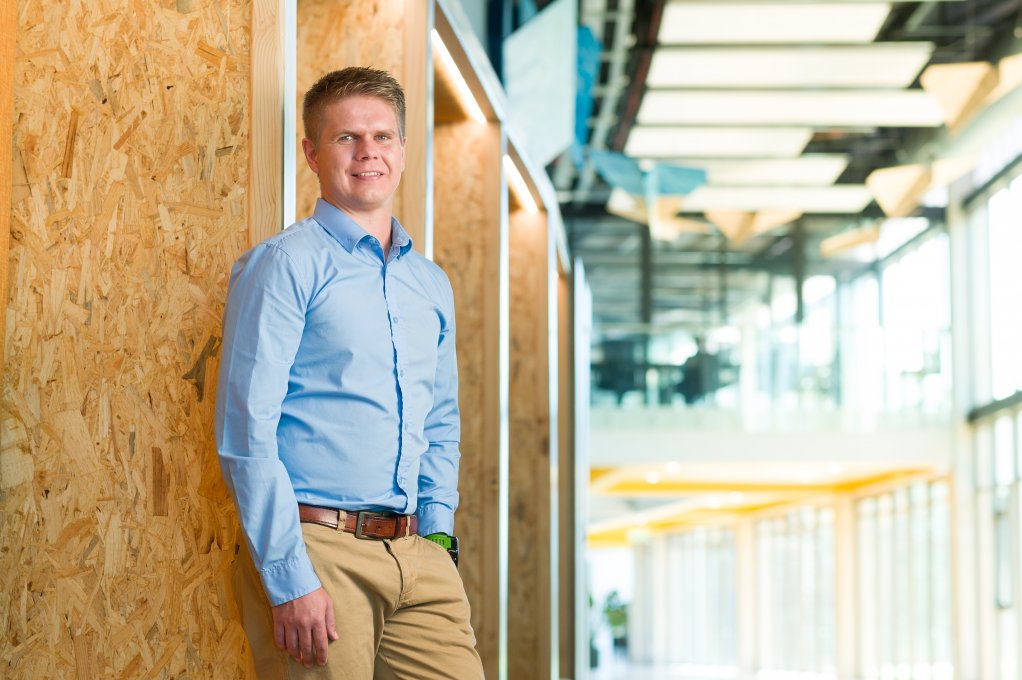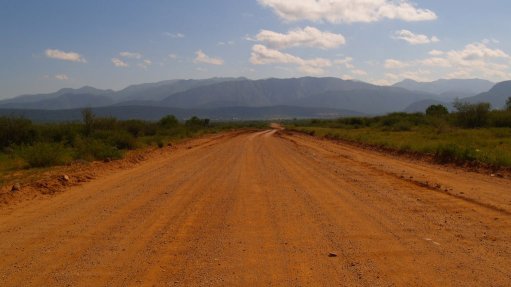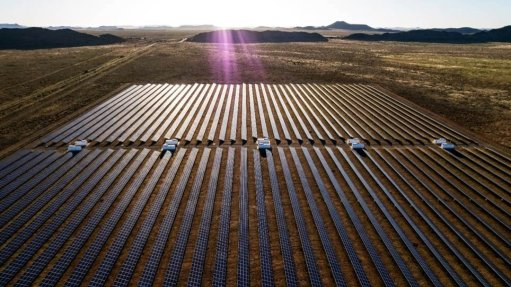Wood beneficial for the circular economy


SCHALK GROBBELAAR Only one-third of the wood used in a linear economy would be required in a circular economy
The Graduate School of Technology Management at the University of Pretoria (UP) says policy needs to be developed to ensure wood forms part of the circular economy.
A circular economy is an economic developmental approach designed to benefit businesses, society and the environment. In contrast to the 'take, make, waste' linear model, a circular economy is regenerative and aims to gradually decouple growth from the consumption of finite resources.
UP Engineering and Technology Management Department senior lecturer Schalk Grobbelaar explains that, in a circular economy, the life cycle of wood begins with structural timber being used in buildings, where it will remain until the building is dismantled.
After being dismantled, the timber can be used for chipboard. Thereafter, it can be converted into biochar or biomass. Biomass is one type of renewable resource that can be converted into liquid fuels known as biofuels for transportation. Biochar is charcoal that is produced by pyrolysis of biomass in the absence of oxygen; it is used as a soil ameliorant for both carbon sequestration and soil health benefits.
Grobbelaar argues that sawmilling can increase South Africa’s carbon dioxide (CO2) sequestration by about two-million tons a year if it uses its existing biomass to generate power. South Africa currently produces about two-million cubic metres of structural lumber a year. To achieve this, it uses about four-million cubic metres of logs a year. This means that about two-million cubic metres of biomass is available from sawmills alone to generate biomass power.
“Only one-third of the wood used in a linear economy would be required in a circular economy,” notes Grobbelaar.
He adds that the CO2 absorbed by a tree is about 1 t/m3. Therefore, sawmills can increase South Africa’s CO2 sequestration by about two-million tons a year if it uses its existing biomass to generate power.
Therefore, Grobbelaar emphasises the importance of policies directed at the promotion of bioenergy and renewable building materials.
“Bioenergy is currently not included in South Africa's Renewable Energy Independent Power Producer Procurement Programme, and this should change.”
He points out that developing mass timber manufacturing capacity is generally capital intensive.
“Without a predictable market demand, investors are wary of investing in this. “If there is a noticeable demand for mass timber in South Africa, local manufacturers will be more willing to invest in manufacturing capacity.”
Mass timber products are generally considered value-added products and will, therefore, be commercially feasible as long as there is a sustainable market demand, concludes Grobbelaar.
Article Enquiry
Email Article
Save Article
Feedback
To advertise email advertising@creamermedia.co.za or click here
Announcements
What's On
Subscribe to improve your user experience...
Option 1 (equivalent of R125 a month):
Receive a weekly copy of Creamer Media's Engineering News & Mining Weekly magazine
(print copy for those in South Africa and e-magazine for those outside of South Africa)
Receive daily email newsletters
Access to full search results
Access archive of magazine back copies
Access to Projects in Progress
Access to ONE Research Report of your choice in PDF format
Option 2 (equivalent of R375 a month):
All benefits from Option 1
PLUS
Access to Creamer Media's Research Channel Africa for ALL Research Reports, in PDF format, on various industrial and mining sectors
including Electricity; Water; Energy Transition; Hydrogen; Roads, Rail and Ports; Coal; Gold; Platinum; Battery Metals; etc.
Already a subscriber?
Forgotten your password?
Receive weekly copy of Creamer Media's Engineering News & Mining Weekly magazine (print copy for those in South Africa and e-magazine for those outside of South Africa)
➕
Recieve daily email newsletters
➕
Access to full search results
➕
Access archive of magazine back copies
➕
Access to Projects in Progress
➕
Access to ONE Research Report of your choice in PDF format
RESEARCH CHANNEL AFRICA
R4500 (equivalent of R375 a month)
SUBSCRIBEAll benefits from Option 1
➕
Access to Creamer Media's Research Channel Africa for ALL Research Reports on various industrial and mining sectors, in PDF format, including on:
Electricity
➕
Water
➕
Energy Transition
➕
Hydrogen
➕
Roads, Rail and Ports
➕
Coal
➕
Gold
➕
Platinum
➕
Battery Metals
➕
etc.
Receive all benefits from Option 1 or Option 2 delivered to numerous people at your company
➕
Multiple User names and Passwords for simultaneous log-ins
➕
Intranet integration access to all in your organisation



















